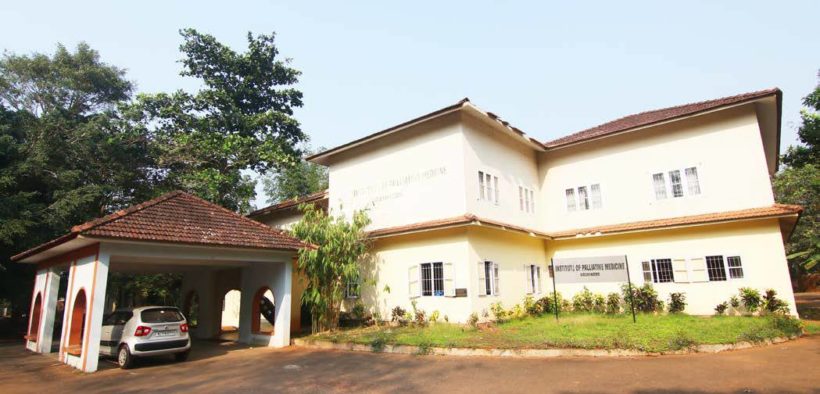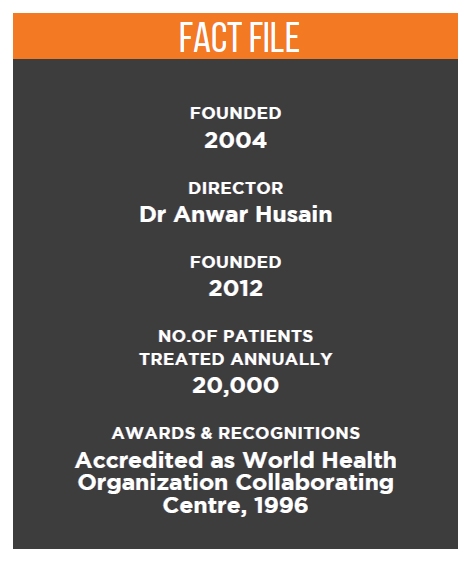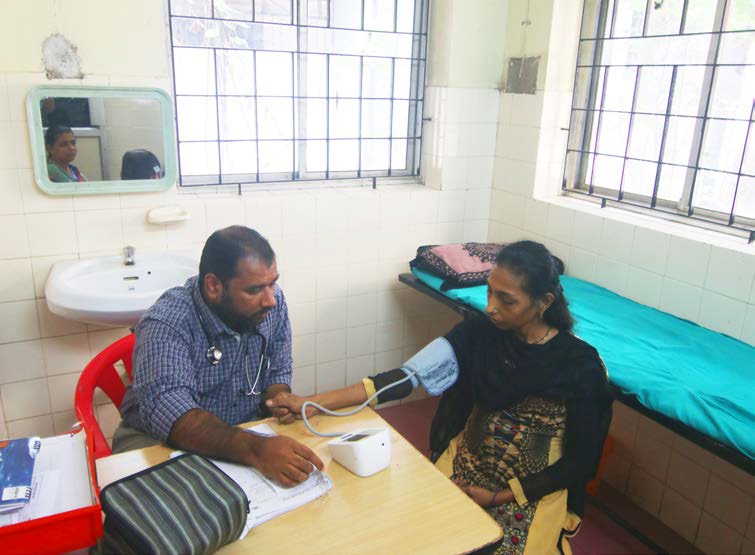Resting In The Shade

The Institute of Palliative Medicine in Kozhikode is adding life to the years of those peering into the final days of their lives.
By Lidiya Prasad
What would you do today if you realized that your days on earth were numbered? Would you choose to hike that trail you have been meaning to trek for years? Would you watch the waves go by, seated by the shores of the sea? Or would you choose for some peace and quiet at a secluded abode? Ultimately, it is serenity that we eventually seek out in life. And for a few terminally ill souls, this search ends at the Institute of Palliative Medicine at Kozhikode, Kerala.
A pioneering palliative care unit in southeast Asia, the Institute of Palliative Medicine (IPM) is also the first World Health Organization Collaborating Centre for Community Participation in Palliative Care and Long Term Care in a developing country. The novel idea of setting up a sanctuary of care and compassion was conceived in the thoughts of Dr. M R Rajagopal, then head of the anesthesia department of the Kozhikode Medical College, and Dr. Suresh Kumar, who currently serves as Technical Advisor at the institute. Talking about the dire need for palliative care, Dr. Kumar says, “There is a huge need for such care as most people need love and support in the final phase of their lives, during which they are heavily dependent on others.”

Located in Kozhikode’s Medical College campus, IPM is the training, research and outreach arm of the Pain and Palliative Care Society, which started operations in 2004. The institute seeks to provide specialized care and palliative medical treatment to patients whose diseases have passed the curable stage.
Through its thoughtful initiative, IPM is sending out one clear message to all those who long for love and care in their final days: ‘You matter, till your last breath.’ IPM’s vision and mission revolve around providing quality patient care and offering them a dignified, pain-free way to live their final days.
“Kerala, where the term palliative care was quite unheard of 25 years ago, has now seen services developing all over the state. The message that it is everybody’s business to take care of the sick makes sense to the layman now. If such a change is possible in one region, it should be in other regions of the world,” says, Dr. Kumar, who is an advocate of community involvement in palliative care.
IPM is associated with several projects, like the Mental Health Action Trust, a community-based psychiatric care team, the National Health Mission’s palliative care project, and C4CC, which takes care of children with cancer, especially those suffering from leukemia. Apart from its palliative care services, the institute offers research and training programmes for doctors, nurses, and volunteers. IPM provides rehabilitation programmes to its long-term, bedridden patients by training them in skills like art and crafts. The work produced is later sold through volunteers, and the entire profit goes towards meeting treatment costs. IPM is also closely associated with the Sri Aurobindo Society in Puducherry.

Reiterating the importance of community engagement in palliative care, Dr. Anwar Husain, Director of IPM, says, “Palliative care addresses the problems and sufferings an individual goes through in the last days of their lives, which could be physical, mental, social, economic and spiritual. The role of a doctor or nurse in addressing these problems is very limited, and the rest of the help they need with their care comes from family, friends, and society at large. In this wide spectrum of end-of life struggle, the role of the community in caring for the old and sick is immense.” In India, over 1 million people are diagnosed with cancer every year, and more than 80 percent are found to have reached an incurable stage at the time of diagnosis. With a significant aged population, it can be rightly predicted that the highest number of patients requiring palliative care in the future will fall among the terminally ill, elderly population.

Dr. Anwar Husain
Director, Institute of Palliative Medicine
Going by the Kerala model, which has now become popular among the palliative care fraternity worldwide, IPM has been able to play an instrumental role in engaging the community and trained volunteers in helping those living through the final days of their lives. “Outside Kerala, palliative care is mostly institutionalized,” says Dr. Husain. “You have to get the patient to the hospital, institution or hospice, even in their bedridden states. But under the Kerala model, with the participation of a large number of volunteers, there is a regular home care system throughout the state. The role of community volunteers is very important in the social, emotional and spiritual uplift of patients.” In the near future, the institute hopes to engage more student volunteers and spread the gospe
















